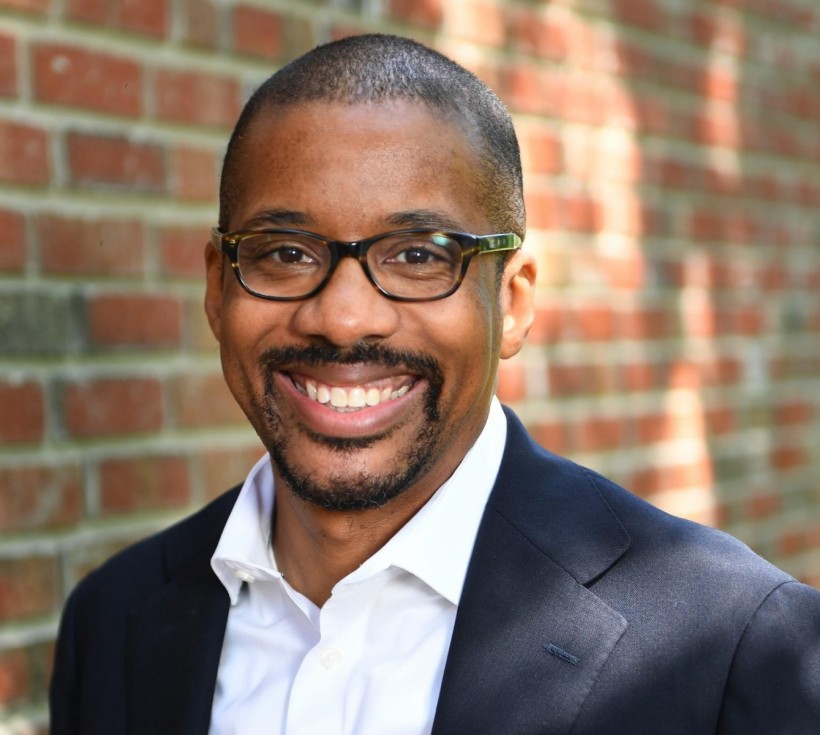
(Photo : Chris Brummer)
As a part of honoring Black History Month, Dr. Chris Brummer - a thought leader in the space of technology and finance - took to the stage and addressed the staff and employees at the Office of the Comptroller of the Currency across the country.
"Black History Month is one of our most sacred times of the year. It is an occasion where we think back and give thanks to our mothers, fathers, sisters, and brothers, who have shaped the very history of this great nation and helped to birth our unique American story. It is a celebration of a great people, and of the great American family," he said.
While each year brings with it trials and achievements, Black History Month presents a unique opportunity for the country to reflect on the past and gather resolve for what is to come. The years following the Covid-19 pandemic have led to unprecedented economic and social upheaval for Americans. While millions have been affected, the lived and shared experience for African Americans has been dire. Not only have they been disproportionately affected in terms of depleting financial reserves and loss of jobs but also in the number of deaths due to the virus. While there is much to be said about the reasons behind such disparities, Dr. Brummer, in his keynote address, drew attention to the silence surrounding Black narratives.
"Black history's giants aren't just the Douglasses, the Dubois's, the Oprahs, the Sojourners, and the Adam Clayton Powells. They are the cooks and cleaners, bellhops and janitors, farmhands and bank tellers, who marched, agitated, and died so that we can be here today," he said.
Brummer also engaged the audience in a series of profound data-driven analyses regarding the literal ghosting of African American representation in key financial institutions. In his 2022 report, "What do the data reveal about (the absence of Black) financial regulators," he highlighted how less than 2% of financial regulators were Black. While appointments have become more diverse since then, the continuing lack of African American financial regulators poses enormous challenges from the standpoint of participatory democracy and economic inclusion.
Except for the Federal Housing Finance Agency (FHFA), no other federal agency represents a Black person in a position of leadership. While this is shocking for a country where African Americans constitute 13.6% of the population, the problem doesn't end here. As Brummer explains, financial regulators write the rules of capitalism and hence hold the keys to economic success. A lack of representation results in financial regulatory policy being created in a way that excludes the interest of African Americans and other minorities.
Historically, the game has been rigged to serve the entrenched interests of political parties, who watch underrepresented minorities with a wary eye. Being excluded from the upper echelons of decision-making over the years hinders policy decisions that understand the nuances, vulnerability, and needs of the communities they serve. The rot, however, lies deep. When looking to provide answers to complex questions on financial regulation, governments tend to turn towards academia. But Brummer draws our attention to shocking revelations about the representation of Black academics in America. Commenting on data from 2017, he pointed out that only 3.2% of doctoral degrees in economics are awarded to Black people each year, "with only one Black economist being reported among the 945-person staff of doctorate-level economists in 2021."
The disparity was even more shocking in the top 5 schools in the USA. "In 2021, I undertook a survey of some of the top faculties of law and discovered disturbing numbers," said Brummer. "Of the 71 corporate, securities law, bankruptcy, and tax law professors teaching at US News and World Report's "Top 5" law schools, there were no Black, Latino or Native American professors."
While the situation has improved in fits and starts, the sluggish pace at which it takes place is unlikely to improve the economic situation of Black minorities. The more important question is, "Ten years from now, twenty years from now, what will we celebrating?" asked Brummer. "And I'd like to offer to you the perspective that that answer depends on asking just what you are willing to fight for. And whether you'll even have the tools at your disposal to answer in a way that speaks to our collective American values."
Brummer also pointed towards the vital role that America's press can play in supporting the voices of the Black community; however, even that he says, is devoid of Black voices. Of the four largest news organizations in America - Bloomberg; NY Times; Wall Street Journal; and the Washington Post - none employ a Black or Latino economics or financial regulatory opinion writer.
When faced with adversity in all facets of government, academia, and media, what can one do? Addressing financial regulators and perhaps all public servants, Brummer provided crucial answers. He believes that regulators should focus on the questions being asked and the answers being given. Those walking the corridors of power can adopt a sense of inquiry to ascertain whether there are better questions to be asked or whether enough time is being taken to evaluate the limitations or trade-offs for the conclusions being reached.
"And when you see critical perspectives missing, open that door for others," he said, encouraging public officials to also embrace resources from the private sector. "They will add nuance and perspective to your vital work."
Dr. Brummer's perspective comes from his life as a professor, lecturer, and author. Himself the son of a law professor, Chauncey Brummer, he grew up in Arkansas to eventually become a professor at Georgetown University Law Center, where he serves as the Faculty Director of the Institute of International Economic Law and has spent over a decade researching the development of financial and regulatory policy. His expertise: the impact of technology on how authorities operationalize supervision and regulatory oversight. Not surprisingly, in addition to his service to academia, Brummer has served on a range of governmental advisory bodies including the Commodity Futures Trading Commission's Subcommittee on Virtual Currencies, the Consultative Working Group for the European Securities and Markets Authority's Financial Innovation Standing Committee, and the National Adjudicatory Council of FINRA, where he received accolades for his work on advancing investor protection. Most recently he served as a member of the Biden-Harris transition team. Though every year his service for the month of February has been directed towards staffers at key regulatory agencies for years, and talking about the intersection of diversity and financial markets, his interest strikes close to home. He is, notably, the husband of the esteemed securities lawyer Rachel Loko.
* This is a contributed article and this content does not necessarily represent the views of hngn.com








